
Guests
- Mohammed Hanifjournalist based in Karachi and former editor of the BBC Urdu service in London.
We look at the political crisis in Pakistan as the Islamabad High Court on Friday granted two weeks’ bail to former Prime Minister Imran Khan after his arrest sparked mass protests. Paramilitary forces arrested Khan on corruption charges, but Pakistan’s Supreme Court later ruled his arrest was “invalid and unlawful.” Khan served as prime minister from 2018 to 2022, when he was ousted from office in what he called a “U.S.-backed regime change” plot carried out by his political opposition. Mohammed Hanif, an award-winning writer and journalist based in Karachi, says the corruption accusations are part of a larger power struggle in the country, pitting the extremely popular Khan against the country’s establishment, including the military. “Elections are due, and they want to keep him out of the election race. Either they want to disqualify him or put him behind bars,” says Hanif.
Transcript
AMY GOODMAN: This is Democracy Now!, democracynow.org. I’m Amy Goodman.
We turn now to Pakistan. Earlier today, the Islamabad High Court granted bail for two weeks to former Pakistani Prime Minister Imran Khan, whose arrest earlier this week sparked mass protests. On Tuesday, paramilitary forces arrested Khan on corruption charges, but then, on Thursday, Pakistan’s Supreme Court ruled his arrest was invalid and unlawful.
Khan had served as Pakistan’s prime minister from 2018 to 2022, when he was ousted from office in what he described as a, quote, “U.S.-backed regime change” plot backed by his opposition. He’s now blamed the military. Supporters of his political party, the PTI, say the latest charges are politically motivated and part of a broader campaign to silence Khan.
In an attempt to quell the protests, Pakistan’s police issued an emergency order earlier today to ban gatherings in Islamabad. Pakistan has also suspended mobile broadband and blocked access to social media apps, disrupting the lives of millions. Meanwhile, human rights groups accused Pakistani forces of using excessive force on supporters of Imran Khan who have taken to the streets in recent days. At least 10 protesters have been killed. Nearly 3,000 Khan supporters have been arrested.
We’re joined now by Mohammed Hanif. He’s an award-winning writer and journalist based in Karachi. He’s the former editor of the BBC Urdu service in London, where he’s joining us from today.
Welcome back to Democracy Now!, Mohammed Hanif. It’s great to have you with us. Explain what’s happening. Why was Imran Khan arrested? And now why was he released?
MOHAMMED HANIF: I think they’ve been trying to arrest Imran Khan for quite a few months now. The main purpose is quite obvious. Elections are due, and they want to keep him out of the electoral race. Either they want to disqualify him, or they want to put him behind bars. That seems to be the obvious purpose, because he was just thrown out of the government a year ago, and since then, he has been on a warpath. And that’s not new. Almost every single prime minister in Pakistan’s history at some point has fallen out with the Army, which is considered to be all-powerful in Pakistan. But what Imran Khan has managed to do is that he’s managed to polarize what’s called establishment in Pakistan, which is the higher judiciary and military itself.
So, people are hoping that after they put him behind bars, maybe manage to throw away the key, and that’s where he will stay. But he was there under arrest two days, and then the Supreme Court, the chief justice himself, called him, said, “I’m really happy to see you,” then, from a lockup, put him into a state guesthouse, asked him to basically invite his friends over and have an easy night’s sleep. And then, today, he appeared in the court again, and he was granted bail, so now he’s a free man to move.
So, basically, what Imran Khan has managed to achieve is — which no other politician has, I think, in the past — is that he has managed to polarize the establishment itself. So, they don’t quite know what to do with him, because they put him behind the bars. And as Imran Khan has warned, “If you arrest me, the country will burn.” And the country did burn. And now they’ve released him, but there are dozens and dozens of cases against him, some very flimsy, some substantial. And I think they will probably go after him again.
AMY GOODMAN: He seems to be extremely popular throughout Pakistan. Can you explain who his supporters are? And just give us the overall political landscape, why at this point they arrested him.
MOHAMMED HANIF: We keep hearing that he is extremely popular. And the interesting thing is that he’s popular amongst people who basically used to be a bit apolitical. In every democracy, there’s a chunk of people who actually hate politics. So, there were lots of haters in Pakistan who did not like the way things were going. And they’re usually middle-class people, a lot of them. They’re people — lots of women who were politically disengaged, lots of young people who were not interested in politics or just hated the idea of these all politicians who have been running the country.
These are also the same people who love the Army. And when Imran Khan came into power, it was a quite well-known fact that he was groomed by the Army, he was supported by the Army. While he was in power, he said repeatedly that he and Army, they were on one page. In fact, he’s basically confessed that he was a puppet for the Army, that everything that he did while he was in power, he did because Army told him to do so. But when he was thrown out the power after a no-confidence vote, he went on a warpath. So, all these people who were supporting him and supporting the Army, now they have turned against the Army.
So, look at it like a lover’s quarrel. And those quarrels can be very, very bitter, and sometimes very violent. So, that’s why we saw what we saw in Lahore. The Army commander, who basically controls Lahore and, in a way, is kind of, you know, sort of probably more powerful than any politician in Lahore, his house was ransacked, set on fire. It was looted. So, Army is probably just beginning to realize that they have created something that they cannot control anymore.
AMY GOODMAN: Imran Khan described the coup that replaced him as U.S.-backed regime change, but then seemed to shift and blame the Pakistani military. Can you explain the dynamic there?
MOHAMMED HANIF: A fun fact about Imran Khan is that he can say something today, and he can say the completely opposite tomorrow, and his supporters would still love him. So, he’s a man that you cannot accuse of — that he’s contradicting himself, because that is not his weakness. That’s almost his strength.
So, when he was removed, he did say that it was a U.S.-backed conspiracy. Then he’s changed his mind very many times. Then he said that it was Pakistani generals who were traitors who betrayed him and betrayed the country. He has called them all kinds of names. And since then, we keep hearing — you guys probably know this better — that he’s been hiring lobbyists in Washington, D.C., to kind of — to smooth things over with the United States establishment. I don’t even know if they’re interested or not.
But, as a Pakistani, one thing that I found a bit scary in the last few weeks is that there’s this dude called Zalmay Khalilzad, is I think his name, who kind of first tried to liberate Iraq and then Afghanistan, and we both know what happened there. So, any time —
AMY GOODMAN: Was the U.S. ambassador to Afghanistan.
MOHAMMED HANIF: Yes, he was. And then, before, I think, was involved somehow in Iraq, as well. So, every time we hear his name, we hear mass murder, basically, of a world class. So, he is somebody who’s been campaigning on his behalf. I have no idea whether he’s a paid lobbyist or just because he’s out of a job and he’s looking for another cause, another country to save. So, I would only, as a citizen, say that God save Pakistan from Zalmay Khalilzad and the likes of him.
AMY GOODMAN: Do you fear a military takeover in Pakistan now, or would you say that’s already happened?
MOHAMMED HANIF: I think Pakistan is in such a big economic mess right now. I mean, 'til last month, and even now, people are standing in long queues just to purchase, you know, flour for — to make their bread. And things are so bad that — they haven't been so bad in a long time. And Army, what a move, then, if they knew that they could handle the country economically, and which they — which they can’t. Things are as desperate as they can be. So, they’re kind of — they are trying to run things, but it seems that they can’t anymore.
And if they resort to brute force, which they have done in the past, I think we will get into probably a much bigger mess than we are in right now. And I think probably Army fears that, too. So I don’t think there will be any direct takeover by the Army. They will try to do what they’ve been doing in the past. They will stay — they will stay on the sidelines, and they will try to run things. But increasingly, it seems that they are not able to do what they’ve been able to do in the past.
AMY GOODMAN: Mohammed Hanif, I want to thank you for being with us, award-winning Pakistani writer and journalist based in Karachi, former editor of the BBC Urdu service in London, speaking to us from London.

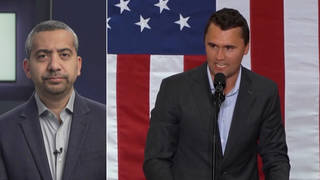
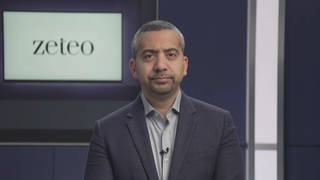
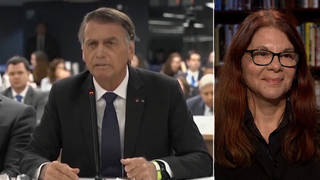
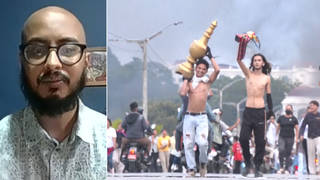





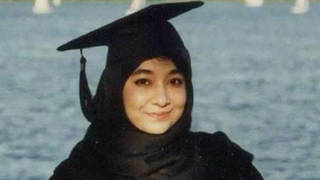

Media Options